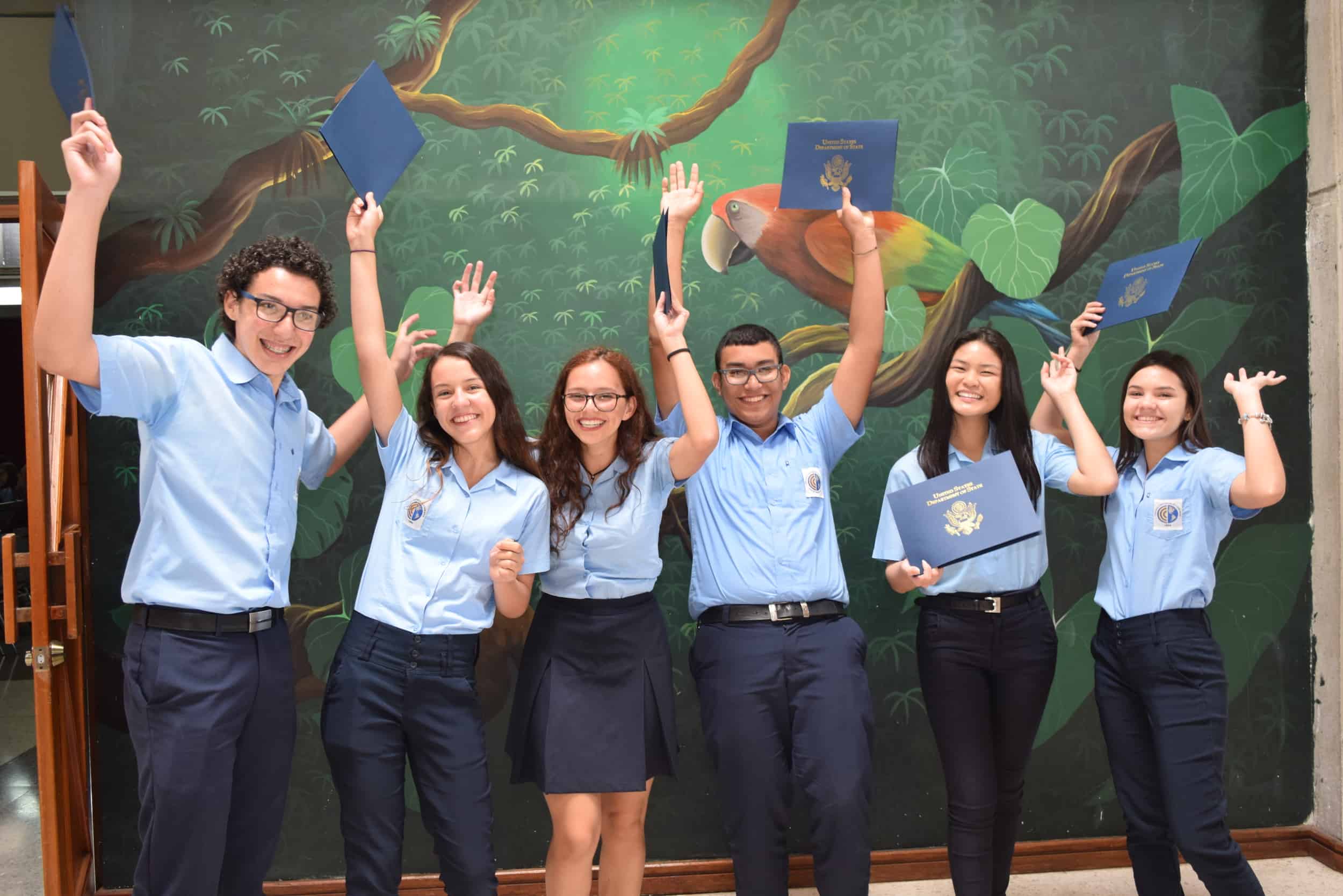I explained in my last column how the writers of the Ministry of Public Education (MEP) English curriculum got it all right—and yet somehow it all went wrong. The program is not working. The students are not learning to understand, speak, or write English. The question is: why?
The answer is not simple. Several factors in the country’s educational system and culture work against the implementation of the innovative methods advocated by MEP.
One major issue is the Costa Rican private university system—if “system” is even the right word. In the United States, most private universities are models of excellence, and students pay dearly for the privilege of attending. Not so in Costa Rica. Here, the state universities—University of Costa Rica (UCR) and Universidad Nacional (UNA)—set the bar for quality, while most (though hopefully not all) private universities appear to operate as unregulated businesses. As one excellent source put it, they “hand out diplomas as if they were dealing cards.”
I can confirm this with a personal experience. A friend of mine who was teaching at a private university in San José asked me to take over an advanced British literature course mid-term. What I encountered shocked me.
Nobody asked for my résumé, credentials, or even my residency card. A security guard simply pointed me to a classroom, where I met a group of “advanced” English students—on the verge of graduation—who couldn’t understand a word I said. There was no textbook, no syllabus, no course description, nothing.
I later learned that instruction had consisted of the previous professor dictating, word-for-word, the introduction to each chapter of a text the students didn’t even have. They memorized the dictation and were quizzed on it. When it came time to pay me, the university had mysteriously learned my name—but still paid me in cash over the counter, no documentation required. I could have been anyone.
With the exception of students trained in the state university system or those who’ve studied abroad, many of these are the people who become English teachers in Costa Rica’s public schools. And according to a reliable MEP source, these teachers are not only poorly trained in English—they’re also poorly trained in teaching methods.
Most are unable, or perhaps afraid, to apply the MEP curriculum. Lacking fluency, they default to teaching in Spanish. Lacking pedagogical skills, they mimic how they were taught: rote drills, copying from the board, and minimal student engagement. Many are unfamiliar with available technologies and don’t use them even when accessible.
Even in the rare cases where teachers are qualified and trying to apply communicative methods, the system sets them up to fail. Students in grades seven to nine receive an average of just three English classes per week—far too little for immersive learning. There are no language labs. Class sizes range from 40 to 45 students, leaving no time for individual attention. Under such conditions, no teacher can succeed.
But the problems don’t stop there. Teachers must also contend with the anxiety caused by what lies ahead—for both them and their students.
Take the case of Marjorie, a 14-year-old public school student. She began seventh grade in town after attending a small village school that had only offered Spanish, math, and social studies. She was placed in a class with peers who had several years of English instruction behind them. This was unfair, and possibly illegal. To help her avoid dropping out, I began tutoring her.
The experience has been deeply frustrating. I find myself helping her with material that’s both poorly chosen and poorly taught. One recent assignment was a long vocabulary list that had to be translated and memorized. I immediately recognized it—it was a list of key words from all the chapters her class had covered during the year.
This was her teacher’s attempt to help students pass the ninth-grade MEP exam—even if they didn’t actually understand the material. And here, perhaps, lies the heart of the issue. The root of the problem. But also, just possibly, the seed of a solution.
Stay tuned.






